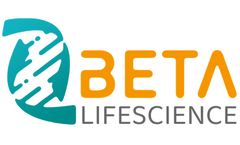Cancer Immunotherapy Articles & Analysis: Older
26 articles found
The emergence of chimeric antigen receptor T-cell (CAR-T) therapy has revolutionized the treatment of certain cancers, providing a promising targeted approach to eliminate cancer cells. ...
These mRNA-loaded LNPs deliver specific mRNA to the liver for the treatment of various liver-related diseases, including infectious diseases, liver fibrosis, cancer, and genetic disorders. 2) Spleen or lung targeting LNP: Researchers at the University of Texas Southwestern Medical Center reported that selective organ targeting capability can be achieved by altering the ...
Further complexity arises as cancer cells also express the adenosine A1 receptor (ADORA1) and A3 receptor (ADORA3). ...
Eugene Shenderov, the lead author of the study, stated that the use of B7-H3-targeted immunotherapy in prostate cancer is feasible and safe, with preliminary data showing potential clinical activity. ...
The company has recently launched TCR-seq, a powerful service that enables rapid and efficient analysis of T-cell receptor (TCR) diversity and clonality, providing critical support for immune and cancer research. As immunotherapy gains widespread use, increasing attention is being focused on T-cell clone diversity and clonality, which is crucial for evaluating ...
Summary In this Cell Patterns publication, Ozette co-founders and collaborators at the Cancer Immunotherapy Trials Network (CITN) outline a novel method of analysis of single cell data, FAUST, and validate the multiple potential applications. The paper tackles 2 important problems: 1) analysis of complex single cell datasets; 2) prediction of response to ...
Targeting or using these cytokines as therapeutic agents has shown potential in allergy, immunodeficiency, autoimmunity, and cancer ...
The advent of immunotherapies for cancer, and more recently of cellular immunotherapies, has substantially altered the treatment landscape. ...
A study conducted under the Lung Cancer Master Protocol (Lung-MAP) found that when treated with a combination of ramuzumab (Cyramza) and Keytruda, Patients with advanced NSCLC whose cancer progressed during prior immunotherapy lived significantly longer than when treated with one of the current standard therapies for this ...
An increasing number of complex and innovative therapeutics, like immunotherapies, are generating incredible responses in patients. Measuring MRD is going to be very important as they continue to be implemented across the cancer continuum. Further, the initiatives the US government has taken, including the most recent recommitment to the Cancer ...
These TACAs have shown potential applications in cancer immunotherapy strategies in past decades. Glycans can serve as a source for the development of novel clinical biomarkers that provide a range of specific targets for therapeutic intervention. ...
Pancreatic cancer is at an advanced stage when diagnosed when cancer cells have spread and are hard to control. ...
Immunotherapy, in addition to surgery, chemotherapy, and radiotherapy, has now become the fourth pillar of anticancer treatment, with T cell-based immunotherapy being a successful cancer treatment technique. ...
Nanovaccine technology has shown considerable promise in the treatment of cancer, in addition to infectious disorders. The ultimate goal of cancer vaccines is to fully activate the immune system so that it can recognize tumor antigens and eradicate tumor cells, and nanotechnology possesses the qualities required to do this. Nanovaccine technology, as one of the ...
Simply put, CAR-T is to transform the patient's immune T cells in vitro by biotechnology, so that they recognize antigens on the surface of tumor cells, and then inject these cells back into the patient to achieve the therapeutic effect of recognizing and killing cancer cells. In 2017, CAR-T therapy was first approved by the FDA for the treatment of blood ...
The findings, published in Nature, open the door to the treatment of a wider range of cancers with immunotherapy and the application of each therapy in a larger proportion of the population. "This research is very exciting because it improves the possibility of targeting very specific tumor molecules, expanding the cancers that can be treated ...
The study, called the Vaccination Against Canine Cancer Study, or VACCS, is the largest, most expensive interventional veterinary cancer trial to date. ...
ByCalviri
In a new study, researchers from Memorial Sloan-Kettering Cancer Center in the United States have found that specific patterns or "signatures" of markers on the surface of immune cells in the blood may be biomarkers of immune checkpoint immunotherapy response. ...
A breakthrough in nanotechnology accelerates vaccine production While COVID-19 hotspots have continued to emerge driven by the Delta variants, the data still shows that vaccinations are effective at preventing hospitalizations and deaths. While over 4 billion vaccine doses have been administered worldwide, only 27% of the world’s population and only 1.1% of people in low-income countries ...
Therapeutic vaccines may well be the next wave of immunotherapy for cancer treatment. Peptide-based vaccines will play a pivotal role in the field. ...














